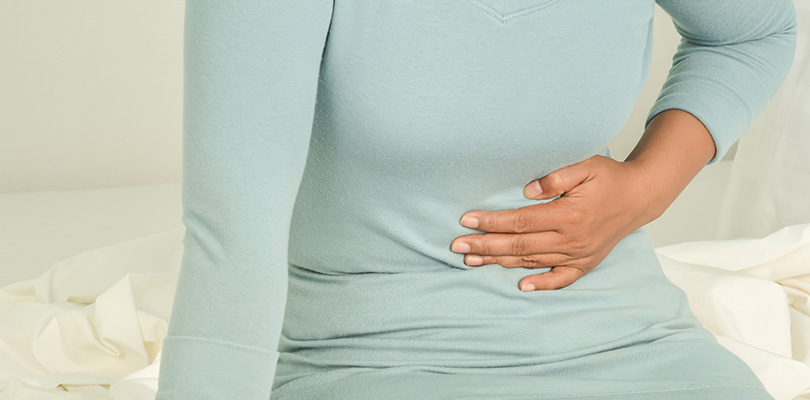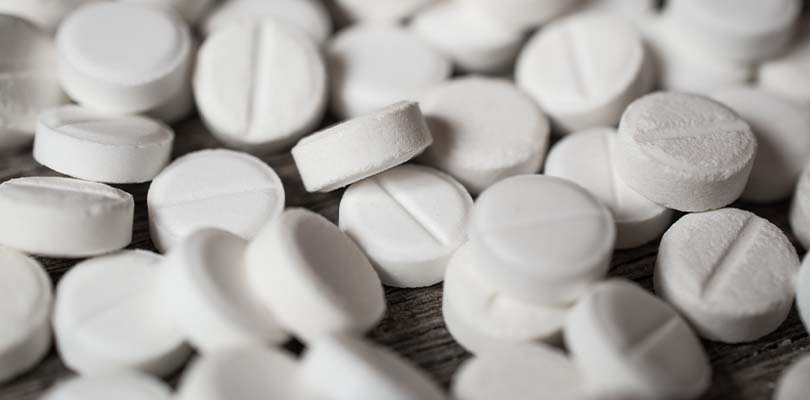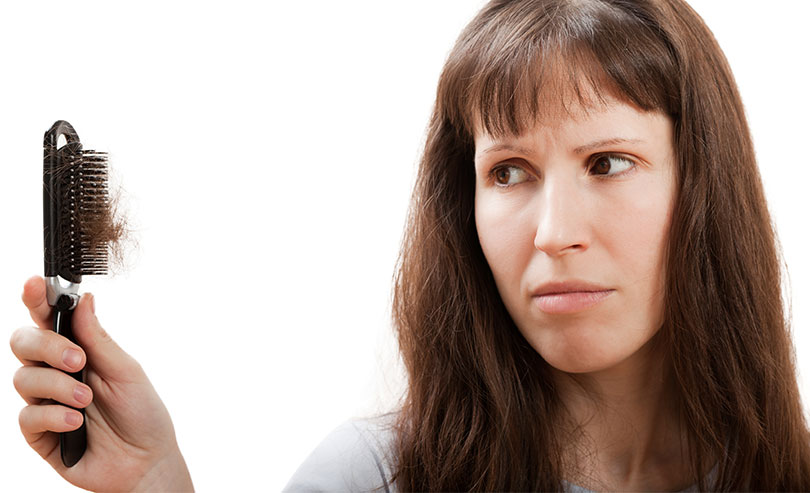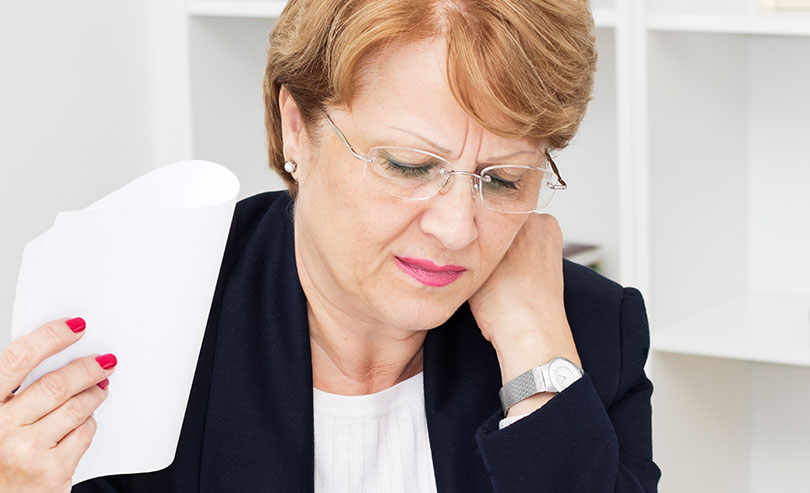Menopause and Bloating
If you’re in perimenopause or menopause, your estrogen level is dipping, which causes a number of menopausal symptoms – including bloating.
We’re all familiar with bloating, but the medical description is “uncomfortable pressure in the abdominal area caused by extra air or fluid in the gastrointestinal tract. It can feel like fullness or tightness.”
Your stomach swells up, and you may have weight gain (temporary) from water retention.
Your gastrointestinal tract may be affected by menopause as well, which contributes to the bloating. Changes in diet or appetite, as well as slowed digestion, can be problematic. Stress can also trigger indigestion and bloating.
Fortunately, you can take steps to get ugly bloating under control.
The Difference Between Water Retention vs. Gas Retention
Since your stomach and midsection feel the effects of both water and gas retention, it may be difficult to know exactly what causes your bloating.
Gas bloating is the result of trapped air and gets stuck in the stomach. Often you can prevent gas-related bloating by simply eating slower, eating smaller meals and not drinking carbonated beverages. Experiment and see which changes work best for you.
Water retention can occur beyond the gut, causing swelling in hands, feet and elsewhere. Water retention-related bloating can be painful.
You can help reduce water retention – as well as swelling and bloating – with a few simple steps.
How to Stop Menopause Bloating
Lifestyle changes are key to preventing water retention and bloating:
- Drink plenty of water to keep your gastrointestinal tract moving smoothly, which helps prevent water retention.
- Move it regularly as sweat prevents water retention and exercise keeps food moving through the digestive tract, which helps prevent bloating.
- Cut back on gas-producing foods like fried foods, broccoli, and beans.
- Steer clear of carbonated beverages which cause gas.
- Don’t chew gum as swallowing air causes gas.
- Quit smoking as you’ll swallow air, causing gas.
- Reduce salt in food, so avoid processed foods. Excess salt causes water retention and swelling.
- Eat probiotics to tame your digestive tract. Yogurt, sauerkraut, kefir, and other probiotic foods help balance natural bacteria in your gut, which aids digestive health.
- Eat less at meals. Large meals are difficult to digest, eat smaller portions. Our metabolism slows during menopause, that’s why there are more digestive [problems.
Several medications can help relieve bloating discomfort, including:
- Over-the-counter gas medications
- Prescription diuretics and water pills
- Birth control or hormone replacement therapy
While antidepressants treat depression, they can also be used to treat menopause. Here are the pros and cons of using antidepressants for menopause.
Is It Bloating or Weight Gain?
It’s often difficult to know precisely what is happening with your body. Weight gain certainly happens at menopause as well as bloating. How can you tell the difference?
Menopausal bloating has these symptoms:
- Rapid change if size or weight during or after meals
- The difference in size and shape continues throughout the day.
- Short bouts of bloating occur after meals or during hormone fluctuations
- Discomfort or pain accompany the bloating
Weight gain won’t cause a distended stomach after a meal. Weight gain stays on after the party and is related to metabolism changes due to menopause.
If your bloating is a chronic, painful problem, see a doctor. It’s important to learn precisely what the problem is so you can get it under control. The bottom line is the quality of life and living healthy and discomfort-free.
Taking Charge of Menopausal Weight Gain
The dip in estrogen during menopause can make weight gain in the abdomen more likely. But that’s not the whole story, as lifestyle and genetic factors are also in play.
Muscle mass typically diminishes with age and fat increases. When your body loses muscle mass, the rate at which your body uses calories decreases. This makes it difficult to maintain a healthy weight. You will gain weight if you eat as you always did.
Genetic factors are also part of menopause weight gain. When parents or close relatives carry extra weight, there’s a good chance you will, too.
However, there’s more to the story – as lifestyle also plays a significant role in menopausal weight gain. If you’re sedentary, eat too many fried high-calorie foods, and don’t get enough sleep, you fuel weight gain without realizing it.
Preventing Weight Gain (and Bloating) After Menopause
Stick to the basics to avoid menopausal weight gain (and avoid bloating):
- Get more exercise. Aerobic activity is excellent for keeping weight healthy. Strength training will help you build muscle which prompts your body to burn calories more efficiently.
- Build muscle. Aerobic activity can help you shed excess pounds and maintain a healthy weight. Strength training counts, too. As you gain muscle, your body burns calories more efficiently — which makes it easier to control your weight.
- Eat smaller portions. To keep weight gain at bay, eat about 200 fewer calories daily.
- Eat healthier. Fruits, vegetables, whole grains, and lean protein are important. No more fried food!
- Eat the right proteins. Fish, chicken, legumes, nuts and soy are healthy protein sources. Use olive oil instead of butter, margarine or shortening.
- Remove sweets. This includes sugar-sweetened soft drinks, juices, energy drinks, flavored waters, and sweetened coffee tea. Avoid artificially sweetened beverages as well.
- Steer clear of excess sugar – pies, cookies, cakes, doughnuts, ice cream and candy.
- Drink less alcohol as they add excess calories, so you gain weight easily.
It’s all about permanent lifestyle changes that keep you active, slim and healthy. You’ll enjoy life a lot more.







